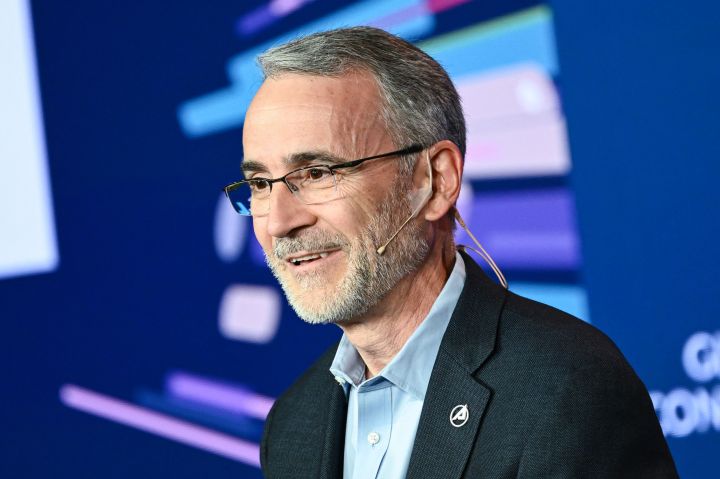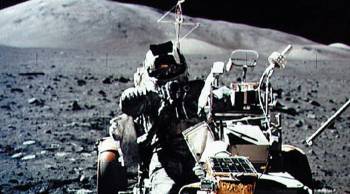
The space industry puts a booster on its diversity-hiring efforts
The space industry puts a booster on its diversity-hiring efforts

Companies compete, but sometimes industries can come together.
The explosion in the commercial space industry sparked demand for talent to fill a slew of tech jobs, especially highly trained engineers and technical staff. About a year ago, some of the biggest space players came together to form the Space Workforce 2030 program, with the goal of promoting diversity in the incoming crop of workers.
One part of the initiative was a commitment to bring on 3,000 paid summer interns from diverse backgrounds by 2030. The 30 participating companies include big names like Lockheed Martin, Boeing, SpaceX and the NASA Jet Propulsion Laboratory.
Hunter Mack, an incoming intern at the Aerospace Corp., a California-based nonprofit that, among other things, does national security research for the U.S. government, said his previous internship at Aerospace “was such an empowering experience to see people in very high positions that looked like me … and having someone that I could talk to that understands my experience and what it’s like to be an African-American in space.”
Marketplace’s David Brancaccio spoke with Steve Isakowitz, president and CEO of the Aerospace Corp., about his company’s role in the industry’s pivot toward diversity. The following is an edited transcript of their conversation.
David Brancaccio: There’s some big names attached to this initiative: your company, I see SpaceX, Lockheed Martin, NASA Jet Propulsion Lab. How’s it work? Lots of interns from minority backgrounds, that’s the goal?
Steve Isakowitz: Yeah, fact, it’s worth giving a little background on it. You know, today is literally the most exciting time to be in the space program. Everything from [the] Webb telescope, exploring Mars, it couldn’t be more exciting. And the challenge that we have is we know that to maintain our ability to be innovative, we’ve got to have a more diverse workforce. But if we’ve looked at [past] years, we actually haven’t made as much progress as we would like. So we decided as an industry, instead of competing for fixed talent, let’s increase the pool of that talent and work together to make that happen. So yes, you’re referring to one of our initiatives as part of doing this, which is a National Space Internship Program, where we’re bringing in diverse students to have a great experience with our company and hopefully pursue a career.
Brancaccio: At what level? Are they college level?
Isakowitz: Yes. We have reached out, and we, in our first year, got over 1,000 students applying for the initiative. We are making sure that not only do we bring them in to have a great summer experience, but we’re going to try to help them develop as a cohort that gets to know each other, to network with each other, hopefully inspire other students. And then the real test is, do we hire these students? Every year, as an industry, we are reporting on metrics to show that we are making advances in terms of our technical workforce, the leadership at our companies, and we’re making a difference at the universities and K through 12.
Brancaccio: Right, because here’s the thing, right, Steve? I mean, you know this, there are internships at some companies, maybe not yours, where it’s a dead-end job, and people are getting coffee and going and doing errands. Where the rubber meets the road is do some people end up with real full-time work and meaningful work?
Isakowitz: Yes, absolutely. And that is the right way that we should be judged. I think the thing that makes it frankly, easier for our industry is we are doing some really superexciting things, you know, right now in space. And so students have a choice. They could choose to go at a large company to undertake some of these big efforts. Or they can go to one of these early-stage startup companies. And there’s a lot. You know, last year in the United States, we set a record for the highest number of launches. We had five times as many satellites launch last year than we did just 15 years ago. And we’re actually looking to launch more satellites by the end of the decade than we’ve had in the history of our space program. So there is so much going on that there really is no shortage of high-quality work.
Brancaccio: What sorts of students, what kind of qualifications, is the industry tending to look for? People who are studying technical fields?
Isakowitz: Yes. I mean, a lot of the focus is on scientists and engineers with a variety of different backgrounds, from mechanical aerospace engineering to computer science. But as an industry, we also need people with nontechnical backgrounds because after all, they’re the ones that also help our companies succeed as well. So, you know, we are looking for even people who are creative, that are artists, that can help us think differently, strategically, pursue different and engage with our workforce and outside.
Brancaccio: You hear pushback? Some who might say, “Why not get your interns based on qualifications only and don’t add identity to those qualifications?”
Isakowitz: Yeah, that’s a false choice. There is no shortage of highest-quality students that are out there. The problem that we have is we are not reaching those high-quality students who have more of a diverse background. And so that’s what our effort needs to be is to really go where those students are, whether they’re at major universities or things like historically Black colleges, but many of these students, particularly with diverse backgrounds, don’t necessarily see themselves as doing this kind of job. And so that’s what this internship is about.
Brancaccio: So have you had a cohort come through your particular company yet, or you’ll see the first ones this summer?
Isakowitz: Well, as part of the National Space Internship, this is going to be the first summer that we’re doing it. Of course, our industry and my company has had a long history of internship programs. So we’re gonna build on the great experiences of the past. And what’s nice about this coalition between the companies is we are sharing best practices. In fact, one of the things we’re planning to do this summer is to have CEOs get on virtual meetings with these students, talk about their careers, talk about their experiences, have these students meet with each other, take tours at our different companies, so they can see some of the other exciting things that are going on.
There’s a lot happening in the world. Through it all, Marketplace is here for you.
You rely on Marketplace to break down the world’s events and tell you how it affects you in a fact-based, approachable way. We rely on your financial support to keep making that possible.
Your donation today powers the independent journalism that you rely on. For just $5/month, you can help sustain Marketplace so we can keep reporting on the things that matter to you.

















